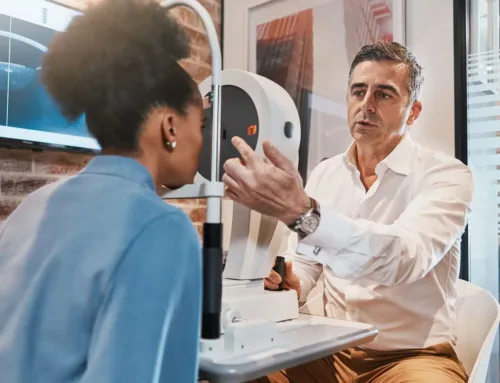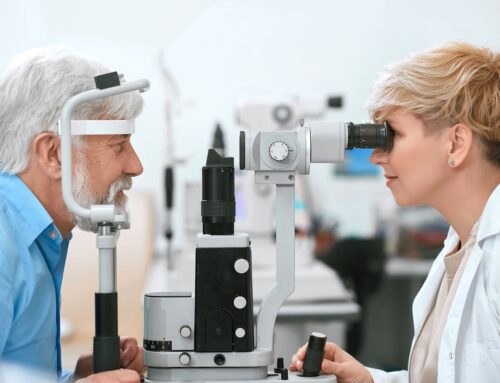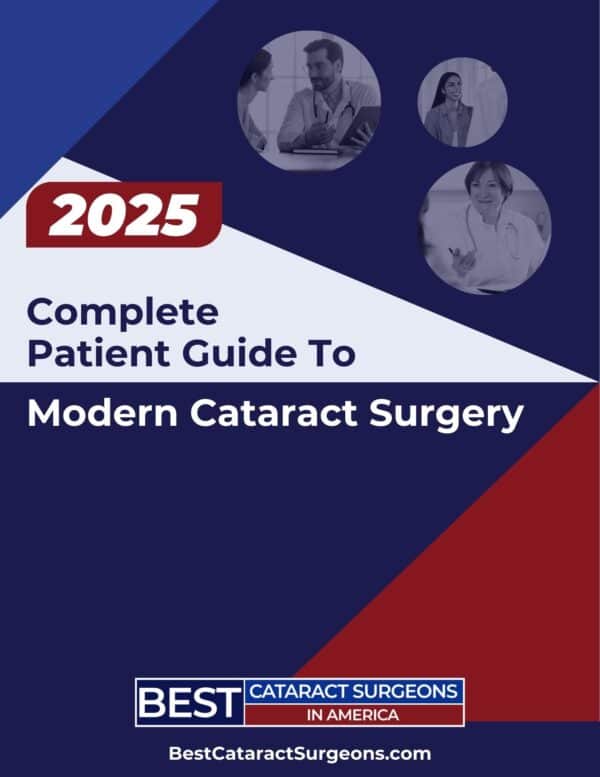What if you could wake up each day to a world filled with vibrant colors and clear details, all without the need for glasses? For individuals 55 and older struggling with cataracts, the ClearView 3 (SBL-3 Implant) offers eligible patients the potential for spectacle-free vision at all distances, providing clarity for near, intermediate, and far vision after cataract surgery. Let’s explore the technology behind it and what you can expect from this remarkable lens option.
The Next Generation Multifocal Intraocular Lens
The ClearView 3, approved by the FDA on July 22, 2022 and marketed internationally, is a next-generation multifocal intraocular lens designed to replace your eye’s cloudy natural lens during cataract surgery. Unlike traditional IOLs, this advanced lens aims to provide clear vision across multiple distances—near, intermediate, and far.
How Does ClearView 3’s Unique Design Work For Optimal Vision?
The ClearView 3 features a distinctive design that sets it apart from other multifocal IOLs:
- It’s Refractive, Rotationally Asymmetric Design: Instead of concentric rings used in traditional multifocal IOLs, ClearView 3 uses a unique segmented design. This approach minimizes visual disturbances like halos and glare, leading to improved night vision and increased comfort in low-light situations.
- Two Distinct Zones: The lens incorporates a distance zone and a near zone with a smooth transition area between them, similar to progressive eyeglasses. The near zone provides an additional +3.00D power on the IOL plane (approximately +2.4D at the spectacle plane), enhancing near vision capabilities. This design offers the potential for clear vision across multiple distances—near, intermediate, and far—reducing dependence on glasses.
- Customizable Placement: Surgeons can optimize lens positioning during surgery for the best possible visual outcome, particularly beneficial for patients with large angle kappa. This customization, along with precise vision correction (available in 0.25 diopter power increments between +15.0 and +25.0 D), allows surgeons to achieve optimal refractive outcomes for their patients.
- High Patient Satisfaction: Clinical trials have demonstrated high levels of patient satisfaction with the ClearView 3. In an FDA study, a significant percentage of patients achieved 20/40 uncorrected distance visual acuity (UCDVA) or better at one year post-surgery, contributing to an improved quality of life.
These design features give the ClearView 3 several advantages over traditional IOLs, as shown in the comparison table below.
How Does It Compare To Other Lenses?
| Feature | ClearView 3 (SBL-3 Implant) | Traditional Monofocal IOLs | Other Multifocal IOLs |
|---|---|---|---|
| Vision Range | Near, intermediate, and far | Typically focused on one distance | Near and far, sometimes intermediate |
| Design | Segmented design with smooth transition | Single focus | Concentric rings or zones |
| Halos & Glare | Reduced due to unique design | Minimal | Can be more pronounced compared to traditional monofocals |
| Night Vision | Improved due to aspheric design | Generally good | Can be challenging |
| Dependence On Glasses | Significantly reduced | Still needed for near vision | Reduced, but varies by brand |
Are You a Candidate for ClearView 3?
The ClearView 3 is ideal for those who’re 55 years or older, diagnosed with cataracts, seeking to reduce dependence on glasses, leading active lifestyles, and have minimal astigmatism (one diopter or less). However, patients with certain eye conditions like uncontrolled glaucoma, chronic severe uveitis, and retinal detachment may not be suitable candidates.
Frequently Asked Questions
Are there any side effects or risks associated with the ClearView 3 lens?
As with any surgical procedure, there are potential risks. These may include infection, inflammation, or visual disturbances. However, the design of ClearView 3 aims to minimize common side effects like halos and glare.
How long does it take to recover after ClearView 3 implantation?
Most patients experience improved vision within a few days of surgery. Complete healing typically occurs within 4-6 weeks, but this can vary among individuals.
Find The Best Qualified ClearView 3 Surgeon Today
The ClearView 3 intraocular lens represents a significant advancement in cataract surgery, offering the potential for clear vision at all distances with reduced dependence on glasses. With its innovative design, high patient satisfaction rates, and potential for improved night vision, the ClearView 3 could be your key to a more active and fulfilling life after cataract surgery.
Ready to explore this life-changing option? Here’s how to get started:
- Use our Surgeon Finder Tool to browse our directory of experienced cataract surgeons in your area.
- Review their profiles to find the right fit for you.
- Schedule a consultation with your chosen specialist.
During your consultation, you’ll have a comprehensive eye exam and review your medical history and vision needs with the surgeon. A detailed explanation of the procedure, and expected outcomes will be given to you and you’ll be able to ask any lingering questions.
Your Clearer Tomorrow Starts Here
Don’t let cataracts hold you back. Use our resources to learn more about the condition, or book in with a cataract surgeon and take the first step towards a clearer, more vibrant vision today.











